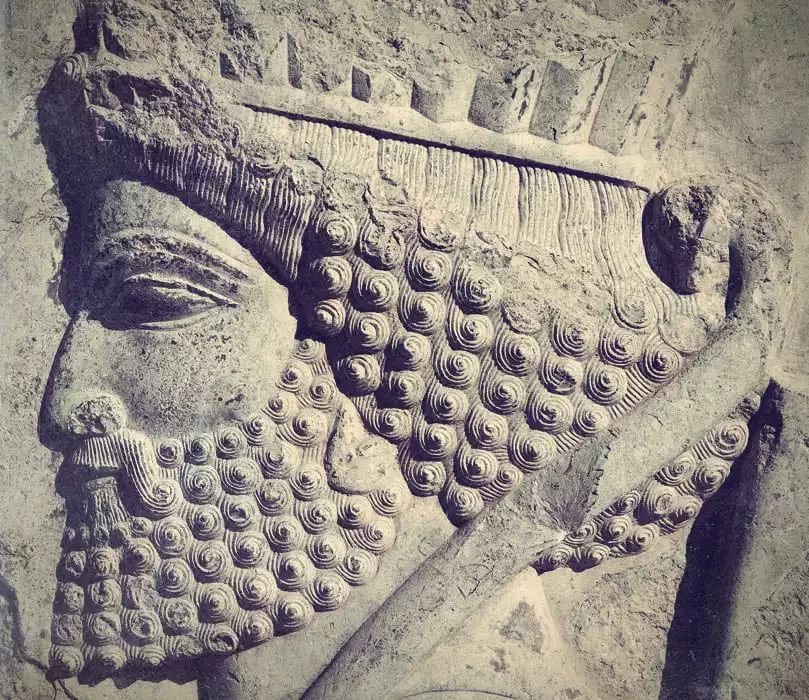Youth | נעורים (Hebrew) | na’ar (Name)
Etymology and Semantic Analysis The English word ‘youth’ refers to the early period of life, particularly the time before one reaches adulthood. This word is translated from the Hebrew word ‘נעורים’ (na’ar), which also means young person or youth, but its usage in biblical texts carries a broader context. In the Old Testament, ‘na’ar’ is […]
Yoke | Ζυγός (zygos) | Noun
Etymology and Semantic Analysis The word ‘yoke’ in English is a direct translation of the Greek word ‘ζυγός’ (zygos), signifying an instrument used to join two animals, typically oxen, together for the purpose of plowing or pulling a load. This concept is present throughout the Bible, symbolizing a range of meanings from oppression and burden […]
Young | νέος (neos) | Adjective
Etymology and Semantic Analysis The English word ‘young’ traces back to the Old English ‘geong,’ signifying ‘youthful’ or ‘in the early part of life.’ In the New Testament, the Greek equivalent is ‘νέος’ (neos), primarily denoting ‘new’ or ‘young’ in age. This term appears in various contexts, shedding light on different aspects of youthfulness and […]
Yonder | εκεῖνος (ekeinos) | Pronoun
Etymology and Semantic Analysis The English word ‘yonder’ is an archaic or literary term, primarily used to refer to something at a distance, but within sight. In the New Testament, the Greek word often translated as ‘yonder’ in older translations is εκεῖνος (ekeinos), a demonstrative pronoun meaning ‘that’ or ‘those.’ It is used to point […]
Yield | καρπός (karpos) | Noun
Etymology and Semantic Analysis The English word ‘yield’, often associated with produce or results, finds its roots in the Old English ‘gieldan’, meaning to pay or return. In biblical Greek, the term καρπός (karpos) carries a broader connotation, often translated as ‘fruit’, ‘yield’, or ‘produce’. It’s encountered in various contexts, ranging from literal fruit from […]
Drive | נָדַד (nadad) | Verb
Etymology and Semantic Analysis The English word ‘drive’ is multifaceted, evoking images of steering, propelling, or pushing forward. Its Old English roots lie in ‘drīfan’, implying a forceful or directed movement. In the Biblical context, ‘drive’ primarily translates from the Hebrew verb נָדַד (nadad), meaning to flee, retreat, or wander aimlessly. Notably, the semantic range […]
Yearn | ἐπιποθέω (epipotheó) – verb
Etymology and Semantic Analysis The English word “yearn” traces back to the Old English “georn” meaning “eager, craving, or desirous.” In the Bible, the Greek word ἐπιποθέω (epipotheó) conveys a similar meaning of intense longing or craving. This compound word combines epi meaning “focused on” and potheó meaning “to desire.” It expresses an emphatic, ongoing […]
Year | שָׁנָה (shanah) | Name
Etymology and Semantic Analysis The English word ‘year’ finds its ancient roots in the Old English ‘gēar,’ akin to the Old High German ‘jār,’ and is related to the Greek word ‘ὥρα’ (hora), signifying a season or a period of time. In the Hebrew Bible, the term ‘שָׁנָה’ (shanah) is predominantly used, denoting a division […]
Drink | πίνω (pino) | Verb
Etymology and Semantic Analysis The word ‘drink’ in English is derived from the Old English ‘drincan’, signifying the act of consuming a liquid. In the New Testament, the Greek verb πίνω (pino) is frequently used, encapsulating both the physical act of drinking and metaphorical interpretations. Notable occurrences of πίνω are found in various contexts, such […]
Dwell | (Greek: κατοικέω, Hebrew: שָׁכַן) | Verb
Etymology and Semantic Analysis The English word ‘dwell’ originates from the Old English ‘dwelian,’ meaning to mislead or to err. However, over time, its meaning shifted to ‘delay,’ ‘linger,’ and eventually ‘remain.’ In the Biblical context, ‘dwell’ predominantly translates from the Greek word ‘κατοικέω’ (katoikeō) and the Hebrew word ‘שָׁכַן’ (shakan). ‘Katoikeō’ carries the connotation […]
Dream | חֲלוֹם (Chalom) – Hebrew | ὄναρ (Onar) – Greek | Noun
Etymology and Semantic Analysis The English word ‘dream’ originates from the Old English ‘drēam,’ which historically meant joy or music but evolved to denote the images and emotions experienced during sleep. In the Hebrew Bible, ‘dream’ is primarily translated from חֲלוֹם (Chalom), while in the New Testament, the Greek term ὄναρ (Onar) is used. Dreams […]
Drunk | μεθύω (methuo) | Verb
Etymology and Semantic Analysis The English term ‘drunk’ originates from the Old English ‘druncen’, historically linked to the concept of being overcome or absorbed by a substance. In the Bible, the Greek equivalent most often found is ‘μεθύω’ (methuo), a verb meaning ‘to be drunk’ or ‘to get intoxicated’. This term appears in several contexts, […]
Xerxes: The Conquering Persian King Who Thrust Dagger-Deep into Greece

As Persian kings go, few loom as large as Xerxes I, also known as Xerxes the Great. Ascending the throne in 486 BCE upon the death of his father Darius I, Xerxes spent the first half of his reign completing unsuccessful military campaigns against Greece. Despite early humiliations, this ambitious ruler presided over the apex […]
Doubt | Διακρίνω (diakrinō) | Verb
Etymology and Semantic Analysis The English word ‘doubt’ finds its roots in the Old French ‘douter,’ which stems from the Latin ‘dubitare,’ meaning to hesitate or waver in opinion. In the New Testament, the Greek word often translated as ‘doubt’ is Διακρίνω (diakrinō), which carries a richer and more nuanced meaning, literally translating to ‘to […]
Dying | ἀποθνῄσκω (apothnēskō) | Verb
Etymology and Semantic Analysis The English term ‘dying’ originates from the Old English ‘dēag,’ gradually evolving into the Middle English ‘dyen.’ In the New Testament, the Greek verb ἀποθνῄσκω (apothnēskō) is frequently employed, translating to ‘to die,’ ‘to pass away,’ or ‘to cease to live.’ This term appears in significant contexts, primarily highlighting the physical […]
Dominion | κυριότης (kyriotēs) | Noun
Etymology and Semantic Analysis The term ‘dominion’ finds its roots in the Old French ‘dominion,’ which originated from the Latin ‘dominio,’ denoting ownership or control. In the Biblical context, especially in the New Testament, it translates to the Greek word κυριότης (kyriotēs), which signifies lordship or sovereign power. This term occurs in passages like 2 […]
Doctrine | διδασκαλία (didaskalia) | Noun
Etymology and Semantic Analysis The term ‘doctrine’ is derived from the Latin ‘doctrina’, meaning teaching or instruction. In the New Testament, the Greek word translated as ‘doctrine’ is διδασκαλία (didaskalia), primarily signifying what is taught. The semantic range of διδασκαλία encompasses teachings, instructions, and precepts, especially those of a religious nature. This term appears notably […]
Divide | διαιρέω (diaireō) | Verb
Etymology and Semantic Analysis The English term ‘divide’ traces its roots to the Latin ‘dividere’, meaning to separate or distribute. However, in the biblical context, the Greek word often translated as ‘divide’ is διαιρέω (diaireō). This term, primarily found in the New Testament, conveys the idea of distributing, separating, or dispersing. The semantic range of […]
Biblical Distress | θλῖψις (thlipsis) | Noun
Etymology and Semantic Analysis The term ‘distress’ in English translations of the Bible mainly corresponds to the Greek word θλῖψις (thlipsis), a noun that signifies pressure, affliction, or tribulation. This word is deeply evocative, painting a picture of being compressed or squeezed, signifying severe mental or societal pressure. The usage of θλῖψις is widespread in […]
The First Book of the Kings | first kings

Translation in British English 1:1 Now King David, advanced in years, found warmth eluding him, even swathed in garments. 1:2 Therefore, his attendants proposed, “Let a young maiden be sought for our lord the king; let her attend to the king, and lie in your embrace, that my lord the king may gain warmth.” […]
Joseph Egypt: Shocking Rise to Glory in Ancient Egypt

Sold into slavery by his jealous brothers around 1900 BCE, Joseph overcame betrayal and imprisonment to become viceroy of Egypt under the Pharaoh. His rags-to-riches story provides timeless inspiration about persevering through adversity with faith and wisdom. Joseph emerged as a paragon of leadership whose legacy still shines today. The Incredible Tale of a Slave […]
Disease | νόσος (Greek, nosos) | ḥālāh (Hebrew)
Definition The term ‘disease’ in the Bible typically refers to physical ailments and conditions causing pain, distress, or dysfunction. In the Greek New Testament, ‘disease’ is translated from the word ‘νόσος’ (nosos), often implying a long-term or chronic affliction. In the Hebrew Old Testament, one of the words translated as ‘disease’ is ‘חלה’ (ḥālāh), indicating […]
Disciples | μαθητές (mathētēs) | Noun
Etymology and Semantic Analysis The English word ‘disciple’ is derived from the Latin ‘discipulus’ meaning ‘learner,’ which translates the Greek word μαθητής (mathētēs). This Greek term signifies one who engages in learning through instruction from another, a pupil or an apprentice. The concept is notably prevalent in the New Testament, primarily referencing the followers of […]
Die | Αποθνῄσκω (apothnēskō) | Verb
Etymology and Semantic Analysis The word ‘die’ is represented in the New Testament primarily by the Greek verb ‘αποθνῄσκω’ (apothnēskō), meaning ‘to die’ or ‘to pass away’. This verb conveys not only the physical cessation of life but also, in certain contexts, a spiritual or metaphorical death. In the Septuagint, the Greek translation of the […]
Devil | Διάβολος: The Many Faces of Evil

The figure of “the Devil” appears in various forms throughout the Bible, from the talking serpent in Genesis to the dragon of Revelation. He is depicted as tempter, accuser, fallen angel, and personification of evil. This complex character has roots in ancient Jewish and early Christian texts and has evolved significantly over the centuries. While […]
